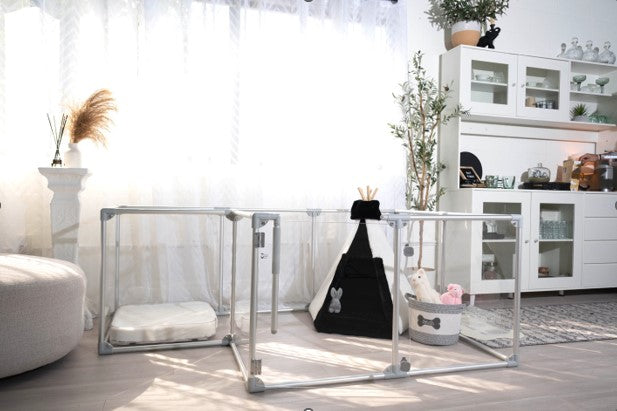Ensuring your dog's happiness is about understanding and catering to their physical, emotional, and psychological needs. Here's an expanded look into ten foundational ways to guarantee joy in your furry friend's life.
1. Exercise: A Path to Paw-sitivity

Physical activity is essential for a dog’s overall well-being, providing benefits that extend beyond just physical health. Regular exercise helps mitigate behavior problems caused by pent-up energy, such as chewing, digging, and excessive barking. It also promotes mental health, reducing anxiety and depression by releasing endorphins. Different breeds have varying exercise needs, from the high-energy demands of Border Collies to the moderate strolls preferred by Bulldogs. Engaging in daily physical activities with your dog not only keeps them fit but also deepens the emotional bond between you two, reinforcing trust and understanding.
2. Healthy Diet: Fuel for FunNutrition plays a critical role in your dog's happiness and energy levels. A balanced diet tailored to your dog’s age, size, and activity level can drastically improve their quality of life. High-quality dog foods that avoid fillers and prioritize meat as the primary ingredient support better health and more vitality. It’s also important to monitor treat intake to prevent obesity, which can lead to a host of health issues. Consulting with a veterinarian can help you choose the best diet for your dog, ensuring they get the necessary nutrients for a happy, active life.
3. Training and Mental Stimulation: Engage the Canine Mind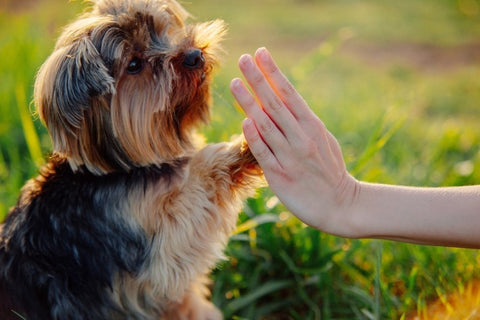
Training provides an excellent opportunity for mental stimulation, which is as crucial for your dog's happiness as physical exercise. It not only teaches discipline but also strengthens the bond between you and your pet through mutual respect and communication. Positive reinforcement techniques, such as treats and praise, make learning enjoyable and rewarding for your dog. Intellectual challenges, including puzzle toys and new commands, keep their mind sharp and engaged, preventing boredom. Training sessions are not just about obedience; they're a platform for social interaction and mental growth, leading to a well-adjusted and content dog.
4. Regular Check-ups: A Dose of CareVeterinary care is paramount in detecting and preventing potential health issues before they become serious. Routine check-ups allow for up-to-date vaccinations, parasite control, and health screenings. These visits are also an opportunity to discuss nutritional needs, weight management, and any behavioral issues that could indicate underlying health problems. Early detection of diseases through regular vet visits can significantly improve treatment success rates. Investing in preventive healthcare is investing in your dog's happiness and longevity.
5. Socialization: Friends on Four Legs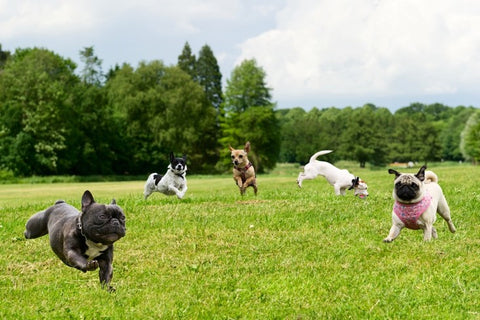
Socialization introduces your dog to a variety of situations, animals, and people, helping them become well-adjusted and confident. Positive early socialization experiences can reduce fear and anxiety in unfamiliar situations, making your dog more relaxed and happy. Social skills acquired through interactions with other dogs and people can prevent aggression and timidity. Dog parks, obedience classes, and playdates are excellent opportunities for socialization. Remember, it's important to proceed at your dog’s pace, ensuring they feel safe and comfortable during social encounters.
6. Grooming: Beyond a Shiny Coat
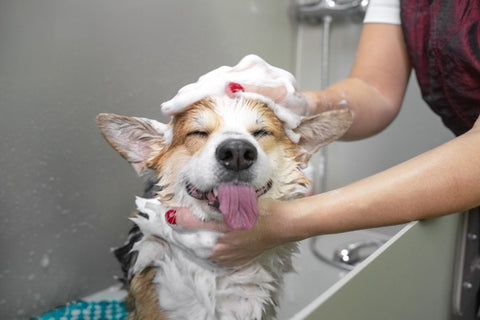
Regular grooming is about more than maintaining your dog’s physical appearance; it’s about ensuring their comfort and health. Brushing your dog not only removes dirt, grease, and dead hair but also helps to distribute skin oils, enhancing the health and appearance of their coat. Nail trimming is essential to avoid pain and posture problems, while ear cleaning prevents infections. Grooming is also a bonding experience that allows you to check for any signs of health issues, such as lumps, bumps, or skin problems. Establishing a routine grooming practice keeps your dog feeling good and reinforces your caring relationship.

Every dog deserves a safe, comfortable place to rest and retreat. Providing a dedicated space, like a cozy bed in a quiet part of your home, allows your dog to relax fully and feel secure. An enclosure from ClearlyLovedPets.com can offer a transparent, airy space for your dog to enjoy without feeling isolated or confined. This personal space is vital for your dog's mental well-being, offering them a sanctuary from the hustle and bustle of household life. Ensuring this space is clean, safe, and filled with their favorite toys makes it a true haven for relaxation and contentment.
8. Quality Time: The Joy of Togetherness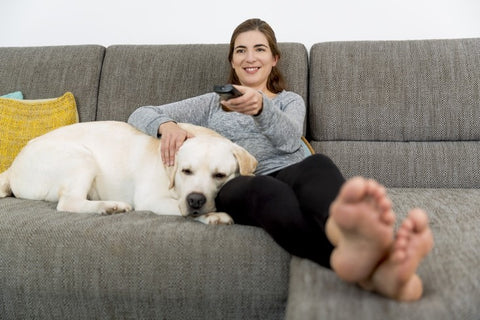
Spending quality time together is the cornerstone of your relationship with your dog, deeply enriching their emotional well-being. These moments, whether they're adventurous walks, playful games, or quiet companionship, signal to your dog that they are a cherished member of your family. It’s during these times that your dog feels most loved, understood, and secure. Engaging in activities that both you and your dog enjoy can also relieve stress and anxiety, promoting a peaceful and happy environment. Remember, the essence of quality time is about making every interaction meaningful, ensuring your dog knows they hold a special place in your heart and daily life.
9. Respect Their Limits: Consent in Canine TermsUnderstanding and respecting your dog’s limits is crucial for a harmonious relationship. Just like humans, dogs have personal boundaries, and recognizing their comfort levels in various situations is key to their emotional well-being. Signs of discomfort, such as turning away, lowering their head, or tucking their tail, are your dog's way of communicating their boundaries. Respecting these signals and not forcing interaction or play ensures your dog feels safe and trusted in your care. This respect for their limits fosters a deeper bond of trust and comfort, allowing your dog to fully engage and be happy in their interactions with you and others.
10. Love and Affection: The Ultimate Treat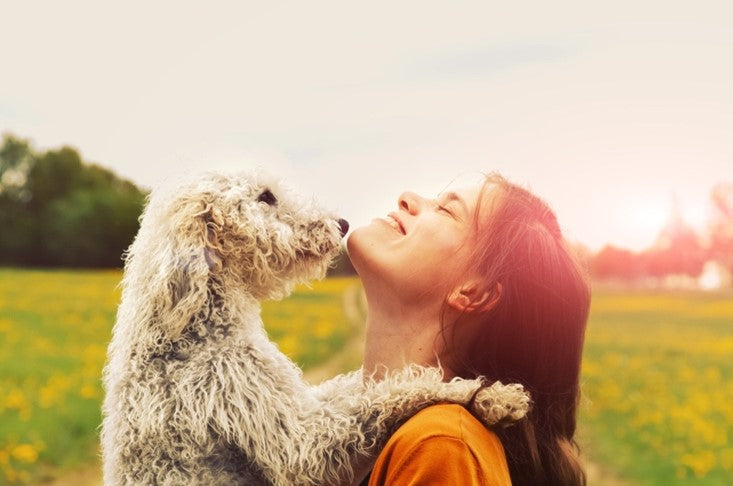
The unconditional love and affection you share with your dog are the most powerful contributors to their happiness. Regular pets, cuddles, and verbal praises communicate your love in a language your dog understands and cherishes. These expressions of love reinforce the bond between you and your dog, providing them with a profound sense of security and belonging. Moreover, studies have shown that such interactions release oxytocin, the 'love hormone,' in both humans and dogs, enhancing the emotional connection. By consistently showing your love and affection, you ensure your dog's life is filled with joy and contentment, making every moment a celebration of your special bond.
Ensuring a Wagging Tail: A Final Thought
Bringing happiness to your dog's life is a multifaceted endeavor that encompasses physical health, mental stimulation, emotional connection, and mutual respect. Each of the ten ways highlighted above plays a vital role in creating a fulfilling life for your beloved companion. By integrating these practices into your daily routine, you’re not just ensuring your dog's happiness; you’re also enriching your own life with the joy and unconditional love that only a dog can provide. Remember, the journey of making your dog happy is a path filled with laughter, love, and countless wagging tails, strengthening the bond that makes every effort worthwhile.
References
American Kennel Club. (n.d.). Why Exercise is Important for Your Dog. Retrieved from https://www.akc.org
Hill’s Pet Nutrition. (n.d.). Dog Care: What's New and Beneficial. Retrieved from https://www.hillspet.com
PDSA. (n.d.). The Importance of Regular Veterinary Check-ups. Retrieved from https://www.pdsa.org.uk
ASPCA. (n.d.). Socializing Your Dog. Retrieved from https://www.aspca.org


